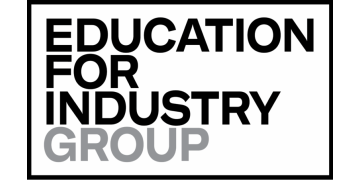Our review into sexual abuse and harassment has been widely accepted, writes Amanda Spielman. So how can leaders make a start tackling the issues it raises?
Last week we published our review into sexual abuse in schools and colleges. While we knew these issues were a problem, it’s appalling to see that so many children and young people – especially girls – feel they have to accept harassment and online sexual abuse as part of normal life, to the point that they don’t think it’s worth reporting.
The response to the review across the sector has been really positive. There’s been no attempt to deny the scale of the problem or to define it as an issue that affects some schools and colleges more than others. Teachers and leaders are clearly determined to grasp the nettle.
So where to begin? Accepting this is an endemic issue means we can’t stop at tackling the incidents we know about. Whether it’s evident on the surface or not, we have to start with the assumption that sexual harassment and online sexual abuse are going on underneath.
The government’s guidance on keeping children safe offers a framework to help shape culture change and should be the first port of call. But beyond that, it’s important that schools don’t take a tick-box approach. Just doing a one-off INSET day, commissioning a costly safeguarding consultant, or requiring staff to read the guidance won’t cut it.
So there’s no one-size-fits-all and certainly no ‘Ofsted-approved’ approach. However, through the review we’ve seen some useful examples of what schools are already doing.
Young people need to have confidence in the people and the process they will be dealing with
For example, the review calls for a whole-school approach. Some are using focus groups or anonymous reporting systems to gather pupils’ views about where they feel their peers could be better educated. At one school, girls had raised concerns about the normalisation of harmful sexual behaviour in light of the Sarah Everard case, leading to a review of their RSHE curriculum.
Children and young people need to have confidence in the people and the process they will be dealing with. Some girls told us they had concerns about what would happen when they told a teacher – so demystifying the process could help. Some have created a ‘What happens next?’ guide. Others have set up different ways for children and young people to report.
Some schools said they found it helpful to have a small number of trained staff working with the designated safeguarding lead so that there are a variety of adults for pupils to turn to. Some had appointed governors with a safeguarding background to challenge and support leaders.
Some teachers told us they lack confidence or feel under-prepared to teach RSHE. Where schools have recognised this, they’re training teachers to recognise and tackle harmful sexual behaviour when it happens.
That includes thinking about how staff model positive behaviour, for example by not sexualising uniform issues – such as girls being told that their skirt length is distracting to others – and instead focusing on smartness and standards for both boys and girls.
While some schools brought in organisations to support with RSHE, what mattered most to the pupils was that the person in front of them was knowledgeable and provided time for discussion.
And while some children said they found it less embarrassing talking to outsiders about sex, others appreciate talking with a trusted teacher. Meanwhile, many teachers said they found talking the issues through with pupils opened their eyes to what the children were dealing with and also meant they were closer to any safeguarding issues.
We all know this corrosive culture extends beyond the school gate. It can’t be right that children have easy access to pornography or that social media platforms can enable 24-hour bullying and harassment. We need the government to put its shoulder to the wheel, and I’m pleased ministers have accepted all the review’s recommendations. There is also a huge role for parents to play here.
But we can’t overestate the positive impact schools have on the social development of our children. It’s intolerable that thousands of children see sexual harassment and abuse as part of growing up. My hope is that our review galvanises policymakers, teachers, parents and young people, and helps to bring about real and lasting change.













For almost 30 years Ofsted inspections have been a dominant feature of the education accountability system in England with safeguarding being a specific and key role for the inspectorate. Throughout this lengthy period parents, government and the public have entrusted Ofsted to keep a watchful eye out for issues of sexual abuse in schools and colleges and to act swiftly when they arise.
It seems inconceivable therefore that it has taken a government initiated rapid review to reveal how prevalent sexual harassment and online sexual abuse are for children and young people. A state of affairs that clearly cannot have taken shape overnight.
Should we be shocked by the findings of the review? Of course we should. But should we be surprised too? Maybe not. According to Ofsted “A review of Ofsted and Independent Schools Inspectorate (ISI) frameworks, training and handling of complaints found that safeguarding is generally well covered on inspection, inspectors are prepared, and complaints are generally dealt with well.” (See last paragraph in the summary of Ofsted’s report) here: https://www.gov.uk/government/publications/review-of-sexual-abuse-in-schools-and-colleges/review-of-sexual-abuse-in-schools-and-colleges
So why hasn’t the prevalence of sexual harassment and abuse been picked up sooner by Ofsted? Has safeguarding of children and young people really been generally well covered? How well have inspectors actually been prepared? Have complaints truly been dealt with well in general? Just how far can Ofsted be trusted to carry out an impartial review of its own activities?
Perhaps it is time for an independent review of the work of Ofsted which can shed light on the reasons why Ofsted has not identified the escalating prevalence of sexual harassment and abuse in schools and colleges during almost 30 years of detailed and intensive inspection activities.
We were here 5 years ago.
The Women and Equalities Committee made recommendations 5 years ago <> and said that this should be an “immediate policy priority”.
Why did a change in inspection framework to inspect schools or sexual harassment have no impact? Plus, wasn’t this at the start of HMCI’s appointment when something new could have been implemented?
Finally, if schools aren’t inspected for 10+ years, can we guarantee our young people are safe? This begs the penultimate question, what is the role of Ofsted and are they fit for purpose…
https://www.teachertoolkit.co.uk/2021/06/14/sexual-harassment-in-schools/
Whilst Ofsted make a substantial number of demanding recommendations for schools and government the recommendations for the inspectorates are pretty meagre and can be summarised as follows:
• Updating inspection handbooks to remove current inconsistencies in inspection documentation across education remits.
• Ofsted and ISI to produce and deliver further INSET on inspecting safeguarding in education settings, including looking at issues of peer-on-peer sexual abuse.
• Inspectors to hold discussions with single-sex groups of pupils where this helps to understand better a school’s or college’s approach to tackling sexual harassment and sexual violence, including online.
The second bullet point is particularly worrisome. Thousands of annual focussed and intensive inspections over a period of almost 30 years has not uncovered what a rapid review revealed carried out with 32, 2-day visits to schools and colleges during just two months; April and May 2021.
Yet, Ofsted seems to think that it is capable of producing and delivering, with ISI, safeguarding in-house INSET that will be sufficient to address the weaknesses in inspection practice. It seems much more likely that Ofsted needs substantial external input to any safeguarding INSET it intends to offer.